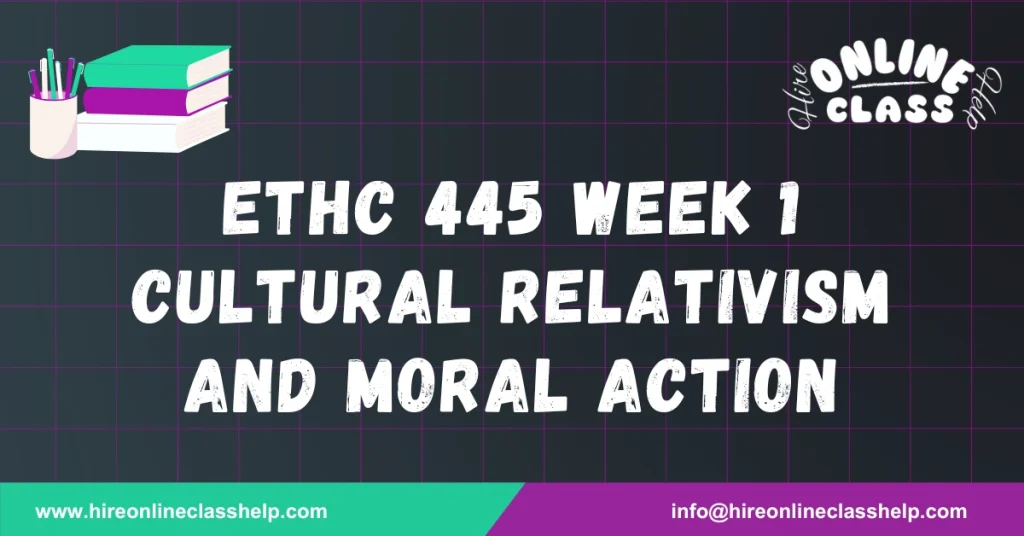






Name
Chamberlain University
ETHC-445 Principles of Ethics
Prof. Name
Date
In clinical settings, medical professionals frequently encounter ethical dilemmas, often arising from cultural and religious differences. Ethical dilemmas can be challenging for healthcare workers, particularly when there is tension between their personal beliefs or professional ethics and the views of their colleagues or patients. As McLennon et al. (2013) state, “For nurses, ethical dilemmas may occur when there is tension between a nurse’s ability to do what is perceived to be right in a given situation and the views of other healthcare providers.” It is crucial for nurses to approach these dilemmas ethically and professionally, ensuring that the needs of their patients are met in a respectful and considerate manner.
One personal experience of mine highlights the importance of understanding cultural relativism in addressing moral dilemmas. A high school friend of mine, who practices Hinduism, visited my home with some other friends. As a Muslim, my religious customs differ from hers. While we all ate together, she refrained from eating or drinking. According to her cultural beliefs, she could not consume food in the home of someone from a different religion. Though she was clearly hungry, she chose not to eat, staying true to her religious principles. In this situation, subjective moralism, which emphasizes personal judgment in determining right and wrong, suggests that my friend’s actions were justified because they were consistent with her own beliefs. As subjective moral relativism posits, “what is right or wrong is decided by the individual.” Therefore, from her perspective, her decision was morally sound.
In contrast, cultural relativism holds that right and wrong are defined by societal or communal norms. In this instance, a cultural moralist might argue that my friend’s actions were appropriate because they aligned with her cultural values. Lynch (2019) explains that “Cultural relativism seeks to explain cultures internally, by reference to its own frames of meaning, rather than by comparison with other cultures or standards.” Even though my own cultural customs dictate that a guest should not leave my home without having food or water, I respected her beliefs. As Rachels and Rachels (2019) note, “Different cultures have different moral codes, and those moral codes determine right and wrong within that society.” This moral principle guided my actions as I accepted her decision despite our differing views.
While I believe there was an objective moral truth in this scenario, I also recognize that my friend’s decision was based on her cultural and religious beliefs. I respected her right to follow those beliefs, even though, from my perspective, she could have at least had water. Her choice was ultimately a reflection of her commitment to her cultural values, which I honored despite our differences.
| Aspect | Subjective Moralism | Cultural Relativism |
|---|---|---|
| Belief System | Based on individual judgment | Based on cultural or societal norms |
| Friend’s Action | Justified because it aligns with her personal belief | Justified because it aligns with her cultural values |
| My Cultural Expectation | Guests should not leave without eating or drinking | Not applicable in her cultural framework |
| Resolution | Respect for individual choice | Respect for cultural beliefs |
Lynch, W. T. (2019). Between Kin Selection and Cultural Relativism: Cultural Evolution and the Origin of Inequality. Perspectives on Science, 27(2), 278–315. https://doi.org/10.1162/posc_a_00308
McLennon, S. M., Uhrich, M., Lasiter, S., Chamness, A. R., & Helft, P. R. (2013). Oncology Nurses’ Narratives About Ethical Dilemmas and Prognosis-Related Communication in Advanced Cancer Patients. Cancer Nursing, 36(2), 114–121. https://doi.org/10.1097/ncc.0b013e31825f4dc8
Rachels, S., & Rachels, J. (2019). The elements of moral philosophy (9th ed.). Mcgraw-Hill Education.